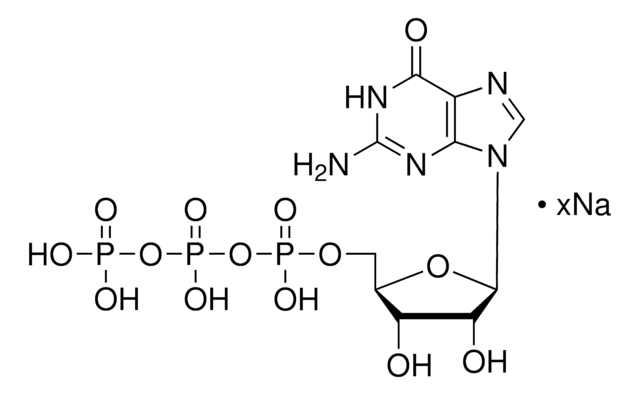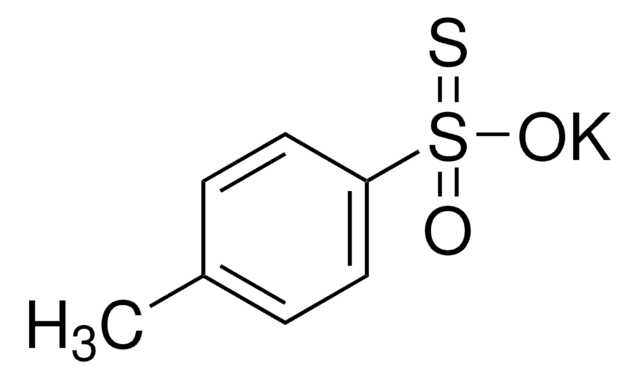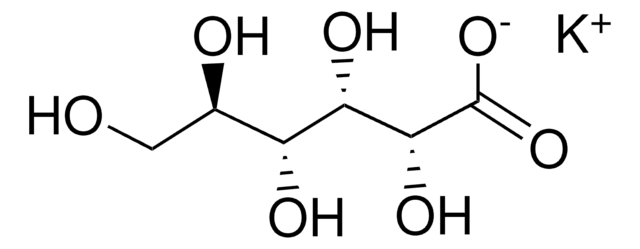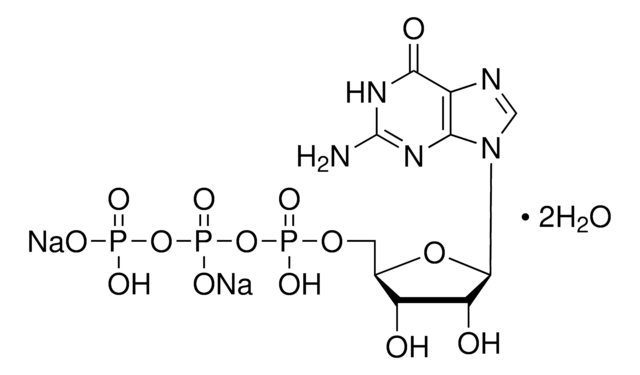83000
Potassium methanesulfonate
≥98.0% (dry substance, T)
Synonym(s):
Methanesulfonic acid potassium salt
Sign Into View Organizational & Contract Pricing
All Photos(1)
About This Item
Empirical Formula (Hill Notation):
CH3KO3S
CAS Number:
Molecular Weight:
134.20
Beilstein:
3914899
EC Number:
MDL number:
UNSPSC Code:
12352100
PubChem Substance ID:
NACRES:
NA.22
Recommended Products
Quality Level
Assay
≥98.0% (dry substance, T)
form
crystals
loss
<10% loss on drying
functional group
sulfonic acid
SMILES string
[K+].CS([O-])(=O)=O
InChI
1S/CH4O3S.K/c1-5(2,3)4;/h1H3,(H,2,3,4);/q;+1/p-1
InChI key
XWIJIXWOZCRYEL-UHFFFAOYSA-M
General description
1,3,(6,7)-Naphthalenetrisulfonic acid trisodium salt hydrate is an anionic chromophore often used in the fabrication of Ni, PPy-NTS and PPy-PTS electrodes to enhance the hydrogen evolution reaction.
Application
Potassium methanesulfonate can be employed as a cocatalyst in ruthenium-catalyzed C-H arylation of heteroarylbenzenes.
Signal Word
Warning
Hazard Statements
Precautionary Statements
Hazard Classifications
Eye Irrit. 2 - Skin Irrit. 2 - STOT SE 3
Target Organs
Respiratory system
Storage Class Code
11 - Combustible Solids
WGK
WGK 2
Flash Point(F)
Not applicable
Flash Point(C)
Not applicable
Personal Protective Equipment
dust mask type N95 (US), Eyeshields, Gloves
Choose from one of the most recent versions:
Already Own This Product?
Find documentation for the products that you have recently purchased in the Document Library.
Customers Also Viewed
Ning Song et al.
Implant dentistry, 28(1), 54-61 (2018-12-07)
Titanium (Ti) is the key material used in dental implants because of its excellent biocompatibility. But wear and corrosion Ti particles had been widely reported to induce inflammation and promote bone absorption. However, little information is known about the damage
Chandra Prajapati et al.
Biology open, 7(7) (2018-07-05)
Human induced pluripotent stem cell derived cardiomyocytes (hiPSC-CMs) offer a unique in vitro platform to study cardiac diseases, as they recapitulate many disease phenotypes. The membrane potential (Vm) and intracellular calcium (Ca2+) transient (CaT) are usually investigated separately, because incorporating
R P Pölönen et al.
Molecular biology reports, 47(2), 1067-1077 (2019-12-02)
Catecholaminergic polymorphic ventricular tachycardia (CPVT) is an inherited cardiac disease characterized by arrhythmias under adrenergic stress. Mutations in the cardiac ryanodine receptor (RYR2) are the leading cause for CPVT. We characterized electrophysiological properties of CPVT patient-specific induced pluripotent stem cell-derived
Studies on the Cocatalyst in Ruthenium-Catalyzed C-H Arylation
Seki M, et al.
Synthesis, 47(10), 1423-1435 (2015)
Sunghoon Kim et al.
Nature communications, 10(1), 3703-3703 (2019-08-20)
A family of plant nuclear ion channels, including DMI1 (Does not Make Infections 1) and its homologs CASTOR and POLLUX, are required for the establishment of legume-microbe symbioses by generating nuclear and perinuclear Ca2+ spiking. Here we show that CASTOR
Our team of scientists has experience in all areas of research including Life Science, Material Science, Chemical Synthesis, Chromatography, Analytical and many others.
Contact Technical Service














